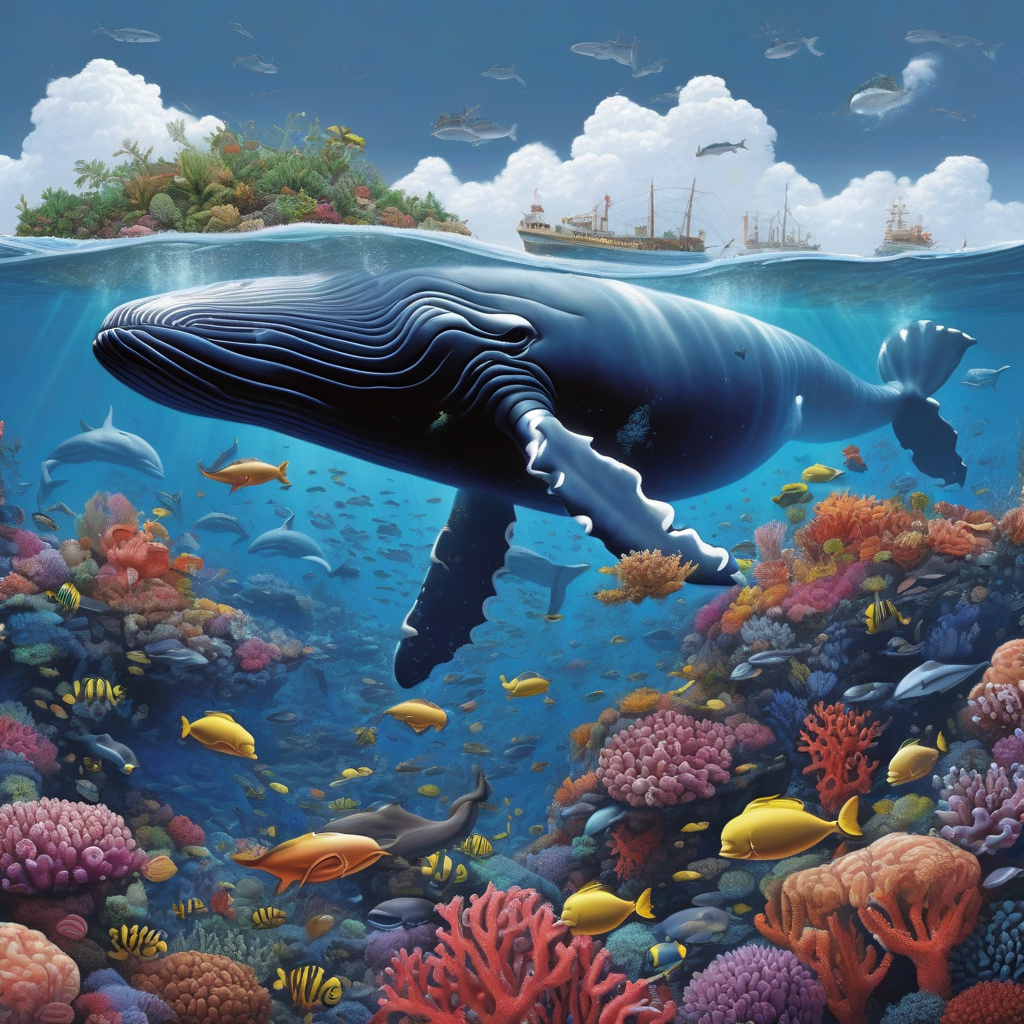Whale Urine: A Vital Component in Fertilizing the Seas
Among all of Earth’s massive marine ecosystems, the one creature that elicits both awe and fascination is the whale. These majestic beings not only captivate us with their sheer size and beauty but also play a crucial role in maintaining the delicate balance of the ocean’s ecosystem. One of the lesser-known yet vital contributions that whales make to the marine environment is through their urine.
Whale urine may not be a topic of everyday conversation, but its significance cannot be understated. Research has shown that whale urine is rich in nutrients, particularly nitrogen and iron, that are essential for the growth of phytoplankton, the base of the marine food chain. When whales release urine near the ocean’s surface, these nutrients are dispersed, providing a vital source of fertilization for phytoplankton and other marine plants.
The importance of phytoplankton in the marine ecosystem cannot be overstated. These microscopic plants not only serve as the primary food source for a wide range of marine animals, including small fish, shrimp, and jellyfish but also play a crucial role in regulating the Earth’s climate. Phytoplankton absorb carbon dioxide from the atmosphere through photosynthesis, helping to mitigate the effects of climate change.
In addition to its role in fertilizing phytoplankton, whale urine also plays a part in promoting biodiversity in the oceans. By providing essential nutrients to marine plants, whales indirectly support a diverse range of marine species, from small zooplankton to large predators like sharks and dolphins. This interconnected web of life is dependent on the nutrient cycling facilitated by whales and other marine organisms.
The impact of whale urine on the marine environment extends far beyond just the immediate vicinity of the whales themselves. Studies have shown that the nutrients released by whales can travel long distances through ocean currents, benefiting marine life in areas far from where the whales originally urinated. This underscores the far-reaching importance of whales in maintaining the health and vitality of the world’s oceans.
Unfortunately, whale populations have faced significant challenges in recent decades due to factors such as overfishing, habitat destruction, and climate change. As a result, many whale species are currently classified as endangered or vulnerable, raising concerns about the long-term health of the marine ecosystems they inhabit. Protecting whale populations is not only essential for their own survival but also for the health of the oceans as a whole.
Efforts to conserve and protect whale populations are therefore crucial for maintaining the delicate balance of the marine ecosystem. By establishing marine protected areas, enforcing regulations against whaling, and reducing marine pollution, we can help ensure that whales continue to play their vital role in fertilizing the seas and supporting marine life. In doing so, we also safeguard the health and sustainability of our oceans for future generations to come.
In conclusion, whale urine may not be the most glamorous aspect of these magnificent creatures, but its importance in fertilizing the seas and supporting marine life cannot be overstated. By recognizing the crucial role that whales play in the marine ecosystem and taking steps to protect and conserve them, we can help preserve the health and vitality of our oceans for years to come.
whale, urine, marine life, ecosystem, conservation












